Why Icelanders are happier than ever
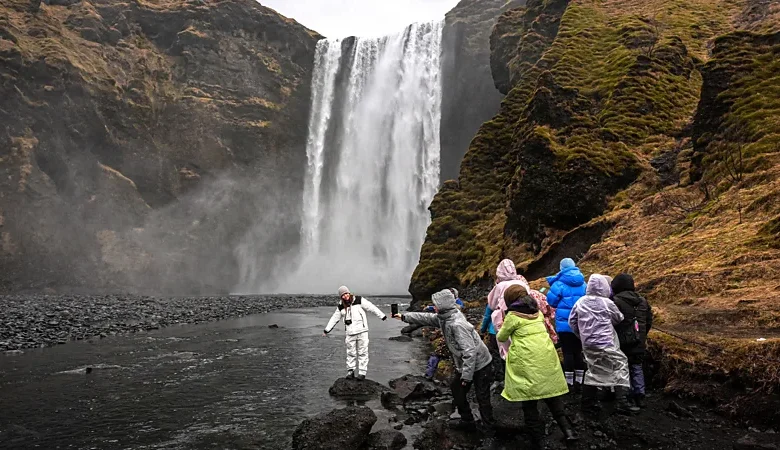
Iceland is one of the few places in the world where happiness is rising. Locals say the secret lies in nature, gender equality and a deep-rooted sense of resilience.
For the third year in a row, Finland has topped the 2025 World Happiness Report. While the Nordic countries traditionally fare well in the rankings, Denmark (ranked second), Sweden (fourth), and Norway (seventh) have all reported a net lower total happiness score since the survey started, measuring a slight decline in happiness over time. In fact, out of the top 20, only seven countries have been getting happier year on year – and Iceland stands out as having one of the biggest increases of them all, seeing a 9.1% boost since its measure on the first index in 2008.
Ranked the third-happiest country in the world this year (compared to 18th in 2008), Iceland scores the highest out of all countries in social support, with impressive scores in the freedom and generosity measures as well (third and fifth respectively). Despite its relatively small population – numbering just under 400,000 – the country continues to invest in infrastructure, progressive social policies and tourism.
But the thing that makes many Icelanders the happiest is something that the government has relatively little control over: the nation’s otherworldly landscapes.
“From home, from work, it’s very easy to get to a national park or open spaces where we can hike, walk by the river, coast or lakes,” says Hrund Gunnsteinsdóttir, author of forthcoming book InnSæi: Heal, Revive and Reset with the Icelandic Art of Intuition. She especially loves the landscape’s variations and stark contrasts, from green and lush to barren and black sands.
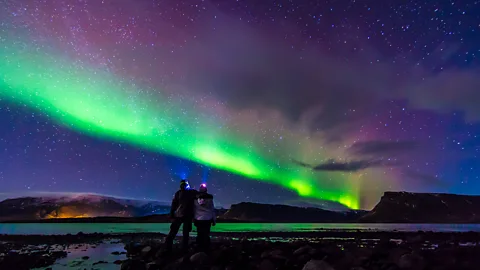 Getty Images
Getty ImagesAs a geologist originally from the US, Jessica Poteet moved to Iceland specifically to be closer to nature. “Being somewhere with volcanoes and Northern Lights and cotton candy-pink skies with snow-capped mountains in winter is a dream,” she says. “I never take it for granted. It’s one of the key things contributing to my happiness.”
That said, residents note that winters can be long and dark, which can be a challenge – but that the summer’s midnight Sun more than makes up for it. Poteet notes that on particularly sunny days, employers will often offer a “Sun holiday” so people can enjoy a day of hiking or skiing, depending on the season.
The country’s strong social safety net also lends residents a sense of stability and ease. “During Covid, I lost my job. I was able to go on unemployment until I found a new job,” says Brenna Elizabeth Scheving, another US expat living in Iceland. She also was able to take advantage of the country’s generous parental leave policy, where both parents are entitled to share 12 months parental leave, up to six months each, with six weeks transferrable to the other parent. The policy applies to both adoptive and biological parents, regardless of marital status or sexuality.
Kindergarten is also available to children as young as two, which enables parents to work and generate income, knowing that childcare and education are provided for.
In fact, equitable gender policies have been built into the country’s DNA for decades, with the world’s smallest gender gap for 15 years running, according to the 2024 World Economic Forum. This no doubt leads to a sense of happiness as well, say residents.
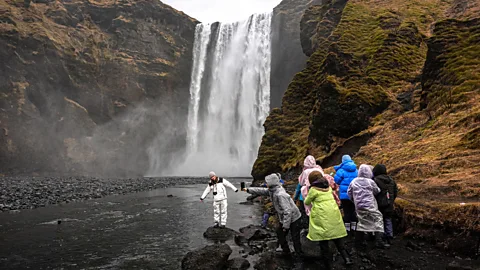 Getty Images
Getty Images“The government is run by women,” says Gunnsteinsdóttir, noting that Iceland had the world’s first democratically elected female president in 1980. “I was six years old when she was elected a president, and I didn’t necessarily conceive of a man being a president.”
Those gender equality gains were hard fought. This year marks the 50th anniversary of the Women’s Day Off, when Icelandic women went on strike for a day to underscore the lack of equal representation in politics and the labour force. “I’m truly grateful to these women and the men who supported them,” says Gunnsteinsdóttir. “Where you have gender equality, the social, economic and political aspects tend to be more stable and better for people and the natural surroundings. In countries with greater gender equality, people are healthier, happier and have better wellbeing.”
That’s not to say Iceland hasn’t had its own share of growing pains in recent years. Costs, particularly in the capital city of Reykjavík, have grown particularly high. “The cost of living is steep, especially housing, which can be a struggle for both locals and expats,” said Kevin Mercier, a French photographer who has lived in Iceland the past six years and chronicles his travels at Kevmrc Travel.
The high cost of short-term rentals has been partially blamed for this rise in housing expense, and tourism in general has put some pressures on the small island. The nation has been transformed by tourism over the past decade, welcoming around 2.3 million international visitors in 2024 – nearly double the 2015 numbers) and around six times the number of residents. That said, the benefits of tourism have outweighed the costs, say many residents, and as visitor numbers continue to grow, the country is adopting new initiatives to manage the impact and protect its natural resources.
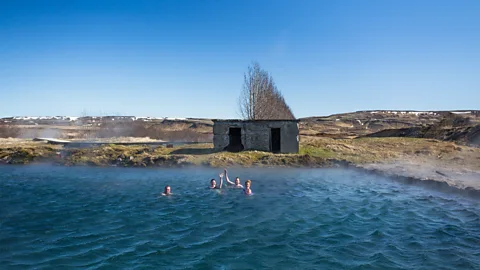 Getty Images
Getty Images“The movement around making tourism more responsible has been very grassroots and run by Visit Iceland in collaboration with local and central authorities and private companies,” says Gunnsteinsdóttir.
Iceland’s infrastructure has also seen a boost from tourism. “Finishing The Ring Road [the looped highway around Iceland that was fully paved in 2019] was great for everyone, making sometimes isolated communities now easily accessible,” said Poteet. “Also, the amount of tourists to the Fagradalsfjall volcano meant the government built trails in the area almost immediately. So impressive!”
Accommodations are pushing to educate visitors about sustainability and the Icelandic way of life. Family-owned property Hotel Ranga on the south coast offers a “Live Like an Icelander” programme, where a local guide takes guests through ancient farmsteads and lets them drink from a well that is said to promote longevity. ION Hotels, owned by female entrepreneur Sigurlaug Sverrisdóttir, has committed to having a female-majority staff across its two properties, ION City Hotel in Reykjavík and the ION Adventure Hotel on Lake Thingvellir, the largest lake in Iceland.
The number of restaurants, bars and cafes has also grown to meet tourist demand, leading to more vibrant urban centres. “When I was growing up, you would walk the streets in Reykjavík and there was hardly anyone walking around in most of the year,” said Gunnsteinsdóttir. “I personally quite like having people around.”
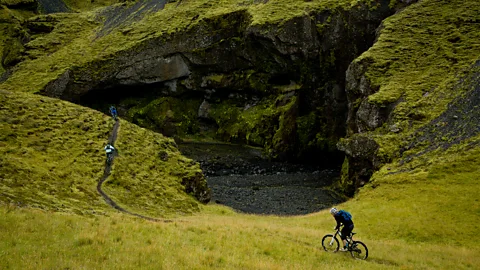 Getty Images
Getty ImagesRegardless of the external factors, it may be an internal sense of adaptability and resilience that leads to Icelanders’ ultimate happiness. Gunnsteinsdóttir points to the ancient Icelandic word for intuition, innsæi, which translates to the “the sea within”.
“It’s the world beyond words – of vision, feelings, imagination and things that brew before they come to the surface of our attention,” she explains. “It also means ‘to see from the inside out’, which refers to having a strong inner compass that enables us to navigate the ocean of life and the world we live in.”
Gunnsteinsdóttir theorises that this sense of direction comes directly from living alongside an often-unpredictable natural environment and fast-changing weather conditions. “In recent years, we’ve had multiple eruptions and earthquakes. When you constantly feel the earth is shaking, it really reminds you that things can change quite rapidly,” she says. “When it comes to happiness, it encourages us to make the best out of what we have when things don’t go according to plan.”





